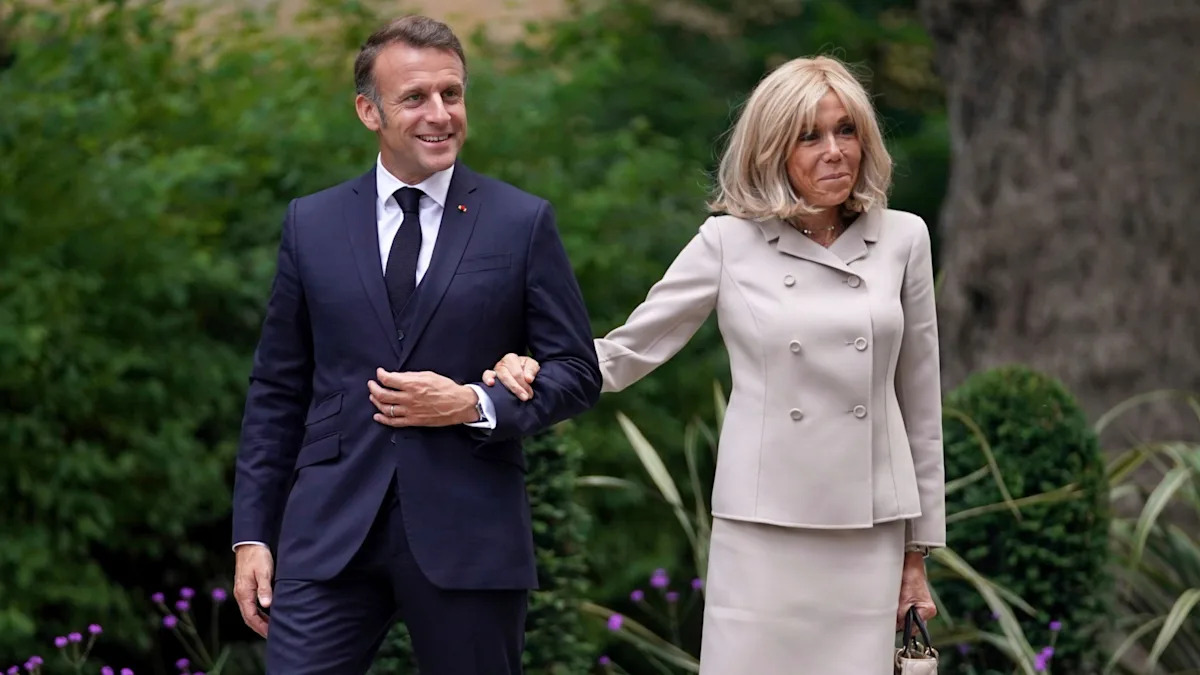Sports
Macron and Wife Present Evidence in U.S. Defamation Case

French President Emmanuel Macron and his wife, Brigitte Macron, are pursuing legal action in a U.S. court to address false allegations regarding Brigitte’s gender identity. The couple plans to submit both photographic and scientific evidence to counter the claims that Brigitte was born male. This case highlights the ongoing challenges public figures face concerning misinformation and defamation.
The Macrons are taking this step in light of a series of false reports that have circulated, particularly on social media platforms. These claims, deemed defamatory, have not only impacted their personal lives but also the public perception of their roles as leaders. U.S. courts have increasingly become venues for high-profile defamation cases, making this situation particularly significant within the context of international law.
Details of the Case
The court proceedings are expected to take place in New York, where the Macrons will present their evidence. This includes a variety of materials aimed at disproving the allegations made against Brigitte. The couple’s legal team argues that such unfounded claims can have serious repercussions on both their reputations and the integrity of public discourse.
In recent years, defamation cases have garnered more attention, particularly as misinformation becomes widespread. The Macrons’ decision to address the claims in an American court underscores the importance of accountability in the digital age. The couple is determined to protect their names and combat the spread of false information.
The Broader Implications
The outcome of this case could have significant implications for how defamation is handled in the context of international figures. Legal experts suggest that the Macrons’ approach may set a precedent for other public figures facing similar challenges. By taking action, they are not only defending their names but also advocating for the importance of factual accuracy in media reporting.
This legal battle is emblematic of a larger phenomenon where personal attacks often intersect with political discourse. As misinformation can easily spread in today’s connected world, the Macrons’ case serves as a reminder of the need for vigilance against false claims. It raises critical questions about the responsibility of media outlets and social media platforms in verifying information before dissemination.
Ultimately, the Macrons’ fight against these defamatory claims is about more than just personal reputations. It highlights the ongoing struggle against misinformation and the need for a robust legal framework to protect individuals from baseless allegations. As the case unfolds, it will likely attract significant attention from both the media and the public, reflecting a growing concern about the impact of false information in contemporary society.
-

 World4 months ago
World4 months agoScientists Unearth Ancient Antarctic Ice to Unlock Climate Secrets
-

 Entertainment4 months ago
Entertainment4 months agoTrump and McCormick to Announce $70 Billion Energy Investments
-

 Lifestyle4 months ago
Lifestyle4 months agoTransLink Launches Food Truck Program to Boost Revenue in Vancouver
-

 Science4 months ago
Science4 months agoFour Astronauts Return to Earth After International Space Station Mission
-

 Technology2 months ago
Technology2 months agoApple Notes Enhances Functionality with Markdown Support in macOS 26
-

 Top Stories3 weeks ago
Top Stories3 weeks agoUrgent Update: Fatal Crash on Highway 99 Claims Life of Pitt Meadows Man
-

 Sports4 months ago
Sports4 months agoSearch Underway for Missing Hunter Amid Hokkaido Bear Emergency
-

 Politics3 months ago
Politics3 months agoUkrainian Tennis Star Elina Svitolina Faces Death Threats Online
-

 Politics4 months ago
Politics4 months agoCarney Engages First Nations Leaders at Development Law Summit
-

 Technology4 months ago
Technology4 months agoFrosthaven Launches Early Access on July 31, 2025
-

 Top Stories1 week ago
Top Stories1 week agoFamily Remembers Beverley Rowbotham 25 Years After Murder
-

 Entertainment4 months ago
Entertainment4 months agoCalgary Theatre Troupe Revives Magic at Winnipeg Fringe Festival





















